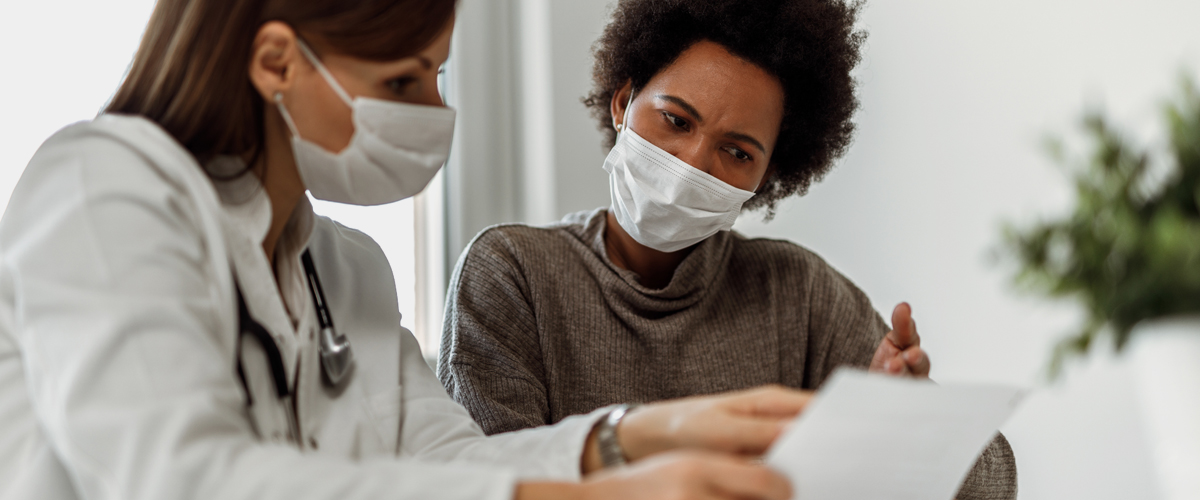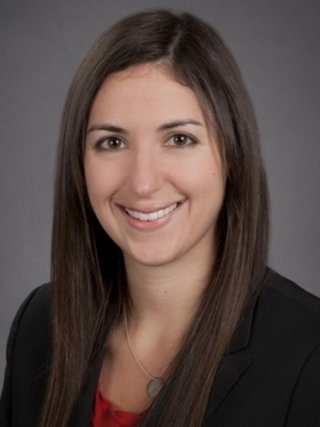Colorectal Cancer and Women: What to Know
A gastroenterologist explains how to recognize the symptoms of colorectal cancer in women and why it’s important to speak to your doctor if something feels wrong.

Colorectal cancer is the third most commonly diagnosed cancer in both men and women in the United States. Although it is slightly more common in men, the lifetime risk of developing colorectal cancer is about 1 in 25 for women (and 1 in 23 for men), according to the American Cancer Society.
“Colorectal cancer is so common we encourage everyone to get screened at age 45, no matter their gender or family history,” says Dr. Andrea Betesh, a gastroenterologist at NewYork-Presbyterian/Weill Cornell Medical Center.

Dr. Andrea Betesh
Though the risk factors — age, family history, smoking, obesity and more — are similar for both men and women, there are certain symptoms to watch for, like bleeding, fatigue, abdominal discomfort, or a change in bowel habits, that a woman could potentially attribute to her menstrual cycle or effects of childbirth.
“A lot of women might have bleeding and not know what their bleeding is from,” says Dr. Betesh, who is also an assistant professor of medicine in the Division of Gastroenterology and Hepatology at Weill Cornell Medicine. “They might think, ‘Oh, I’m just having a weird period this month.’ If you’re not totally sure what’s going on, don’t just assume it’s OK. We would much rather you come talk to your doctor to reassure you than potentially miss something.”
Health Matters spoke to Dr. Betesh to understand colorectal cancer symptoms in women and what’s important to know. “Many people don’t talk about certain things, and it’s important to be open about GI symptoms and communicate with your doctor so that anything worrisome can be checked,” she says.
What is important for women to know about colorectal cancer, particularly in terms of symptoms they could confuse with something else?
No amount of rectal bleeding is normal. If you are bleeding and it’s not the typical time for your period, don’t just assume your period timing is off. You need to talk to your doctor, because it could be a sign that something is happening inside your colon, like a polyp or cancer developing. Not everyone with bleeding has cancer, but any rectal bleeding should be evaluated, regardless of your age.
What else causes bleeding that a woman might overlook?
A lot of women have hemorrhoids, which are enlarged blood vessels where the anus meets the rectum. These are normal blood vessels everyone has, but they’re referred to as hemorrhoids once they cause problems like itching or bleeding. One of the biggest risk factors for developing hemorrhoids is ever having been pregnant or delivered a child. So a lot of women have hemorrhoids, which may bleed intermittently, and they may just attribute any rectal bleeding to that. And very well it could be, but you don’t know for sure.
Because we are seeing more colorectal cancer in younger people, we never want to assume that rectal bleeding is just from hemorrhoids. You should always go get that evaluated to make sure there is nothing more worrisome going on. Come talk to your general physician, OB-GYN, or see a GI doctor to talk about it, because you really should not have blood in the stool for any reason.
What about fatigue or cramps, which many women experience around their cycle?
If you’re fatigued to the point where you can’t get through the day and your doctor checks your blood count and you’re anemic, that’s something to pay attention to. Often, women with heavy bleeding during their period may have iron deficiency. But let’s say you don’t have excessively heavy menstrual blood loss, yet you’re still attributing your iron deficiency to your period. It’s reasonable to ask your doctor, ‘Could this really be from my periods if they aren’t that heavy?’ If you meet with a GI doctor, you can talk about your symptoms at length to determine if you need a GI evaluation for iron deficiency.
There is no one-size-fits-all, since every woman’s body is different, but pay attention to changes in symptoms. Most women, by the time they’re in their 30s and 40s, know what their cycle feels like. Some women have cramps midcycle, and that can be normal — but if you have a change from your baseline patterns, that is something to pay attention to.
"Foods that are rich in fiber are thought to be protective in terms of your risk for developing colon polyps or colon cancer . Think fruits, vegetables, seeds, nuts, whole grains, and plant-based foods. "— Dr. Andrea Betesh
What are other important symptoms to watch for?
If someone loses weight unintentionally, that is alarming. When people say ‘Hey, I lost 20 pounds this year and I really don’t know why,’ that gets my attention.
Excessive fatigue and change in bowel habits are also important to look for. A lot of women, and people in general, don’t talk about their bowel habits. But if the stool looks different, if it’s more frequent or less frequent, or looser or firmer, or you’re having difficulty having bowel movements, you should pay attention to that. Most people know their bodies, and if you notice a change that persists beyond a few days, again, don’t assume everything is fine.
When women are premenopausal, they might experience a change in their GI habits, so that can be difficult to distinguish, but it’s better to err on the side of caution and speak to your doctor.
The alarm bells that something could be wrong in your colon are blood in the stool, change in bowel habits that persist beyond a few days, worsening abdominal pain, unintentional weight loss, and a dramatic decrease in appetite.
What’s important to know about the relationship between diet and colorectal health?
Foods that are rich in fiber are thought to be protective in terms of your risk for developing colon polyps or colon cancer. Think fruits, vegetables, seeds, nuts, whole grains, and plant-based foods.
The importance of fiber in gastrointestinal health and the relationship between nutrition and colorectal cancer risk cannot be stressed enough. Most people in the U.S. do not eat enough fiber. The U.S. Department of Agriculture recommends 25 grams of fiber for women a day and 38 for men; most people in the country average only 16 grams a day.
Additionally, I think a lot of women have a fraught relationship with food. Diet culture, which has impacted many women, is focused on restricting what you eat, versus eating what’s good for you. A diet rich in fiber is satisfying and also healthy for you — healthy for your colon, metabolism, and weight management. You shouldn’t feel hungry all the time to be eating healthy; you should feel satisfied. Fiber, feeling satiated and full from nutritious, whole-grain, and fiber-rich foods, is what we talk to patients about. That will also help with your bowel movements.
How can people add more fiber to their diets?
I love oranges and apples; my fruit basket at home is overflowing with them. I tell people to go to the produce section at the grocery store, hang around there and see what looks good. Focus on adding fiber in the diet through food; don’t worry about supplements. Try to have some variety of fruits and vegetables in your diet. If you hate asparagus or Brussels sprouts, don’t do that; find something that appeals to you.
You can also add chia, flax, or hemp seed to your food to increase your fiber intake. Add a teaspoon to a smoothie, yogurt, cereal, or a salad — you can’t taste it, but you’ve added 5 grams of fiber to that snack or meal.
Aim for about five to nine servings of fruit and vegetables a day. It does take some planning each week to get more fiber in your diet, but the rewards are so worth it.
What else can people do to protect their colorectal health?
Overall, trust your gut, no pun intended! If you think there’s something wrong, if you think there’s something different going on in your body, it’s way better to go in and be evaluated and reassured that everything is OK than to ignore something potentially worrisome. Don’t be embarrassed to come to your doctor and talk about your GI symptoms and your poop. That’s what we’re here for. We want to help people and keep people safe — you are not meant to triage your own medical symptoms when we have resources here for you.
And, of course, get screened. No matter who you are or your risk, once you turn 45 you need to get screened.
Learn more about your digestive health and colorectal cancer screening.
Andrea Betesh, M.D., is a gastroenterologist at NewYork-Presbyterian/Weill Cornell Medical Center and an assistant professor of medicine in the Division of Gastroenterology and Hepatology at Weill Cornell Medicine. She practices general gastroenterology with a focus on the care of patients at high risk for gastrointestinal malignancies.

